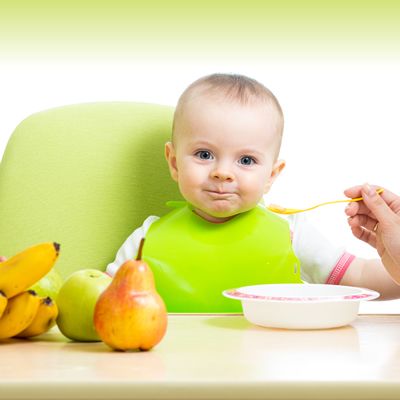Allergy Prevention and Infant Feeding
 Feeding the most common allergy causing foods to babies (infants) by 12 months of age may prevent or reduce the chance of them developing food allergy. These foods include egg, peanut, cow’s milk (dairy), tree nuts, soy, sesame, wheat, fish, and other seafood. They can be introduced to around six months of age (not before four months), while continuing to breastfeed if possible. It is important to feed these foods to children regularly as part of a varied diet once they are introduced. Not eating the foods regularly may result in food allergy development.
Feeding the most common allergy causing foods to babies (infants) by 12 months of age may prevent or reduce the chance of them developing food allergy. These foods include egg, peanut, cow’s milk (dairy), tree nuts, soy, sesame, wheat, fish, and other seafood. They can be introduced to around six months of age (not before four months), while continuing to breastfeed if possible. It is important to feed these foods to children regularly as part of a varied diet once they are introduced. Not eating the foods regularly may result in food allergy development.
Health Professional Information
ASCIA Allergy Prevention e-training for health professionals
ASCIA Guidelines - Infant Feeding and Allergy Prevention
ASCIA FAQ - How to Introduce Solid Foods to Babies for Allergy Prevention
ASCIA Guide - Introduction of Peanut to Infants with Severe Eczema and/or Food Allergy
Nip Allergies in the Bub - a National Allergy Council initiative
ASCIA Position Statement - Packaged Foods for Infants that Contain Most of the Common Food Allergens
ASCIA Clinical Update - Infant Feeding and Allergy Prevention
References - Infant Feeding and Allergy Prevention
Further Information
Content updated April 2025
